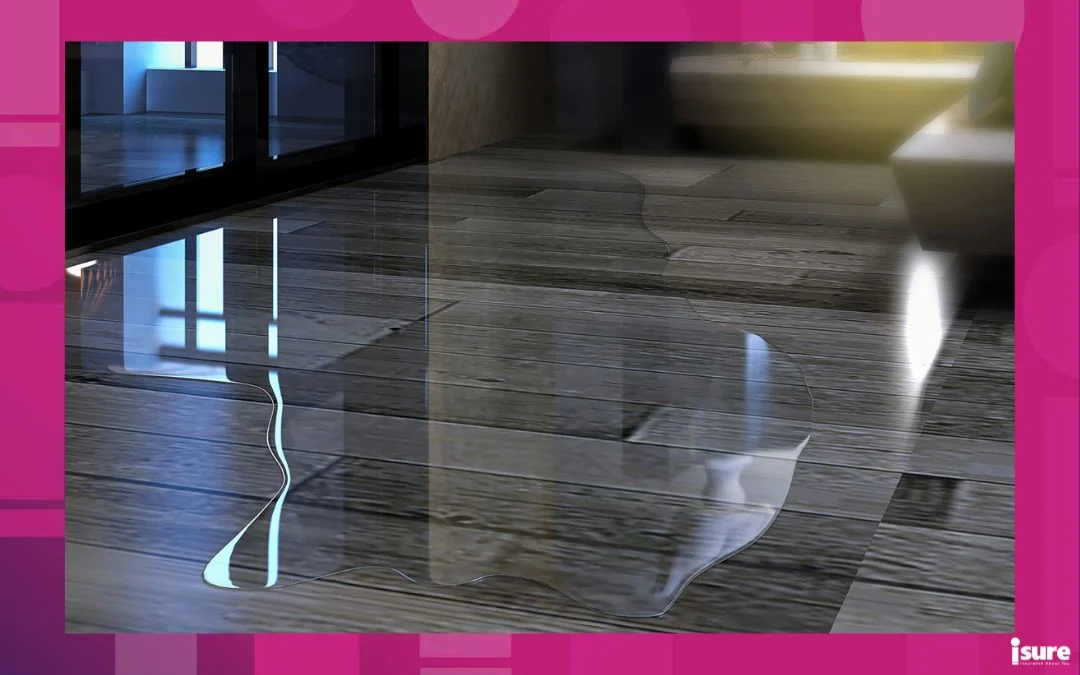Water damage is a common problem that, unfortunately, many homeowners will deal with in their lifetime. Not only can it be a huge nuisance, but it can result in costly damage to your home. To prevent water damage, it’s important to take preventative steps where possible to protect your home from water damage. By following these steps and catching the issue early, you can do just that for both your property and your belongings.
1. Protect your valuables
Sentimental items, such as photographs, artwork, keepsakes, or irreplaceable documents, should always be stored in waterproof containers. This is so if water damage occurs, these items will be the first to stay dry and in their original condition. Remember to never store items like these in your basement, as this is one of the most flood-prone areas in your home. Instead, the top shelf of a closet or somewhere else in your house with elevation will do the trick. If you are low on space and they must stay in the basement, make sure they aren’t on the ground!
2. Inspect your home regularly
It is key to catch issues in your house that can cause water damage before evolving into something more serious. Areas, such as windows, air vents, chimneys, and basements, should all be regularly inspected for leaks or cracks where one may occur. Detecting this early on will help you repair the problem before it can cause serious or permanent water damage.
3. Maintain your sump pump
If you have a sump pump, you must inspect it every so often to ensure it is still in working condition. Checking the discharge pipe is crucial because this is the part that pushes water away from your home. Always make sure that it is aimed away from your property so that the water will drain into a suitable location, such as your lawn or garden. As you may suspect, aiming it back toward your house can defeat its purpose. Make sure you are checking your sump pump regularly to protect your home from water damage!
4. Inspect your roof to help protect your home from water damage
The roof of a house is a common spot for water damage to occur. It is important to regularly inspect your roof for missing, cracked or damaged shingles, or areas where it seems water can get in. Replacing this early will provide you with the security of knowing your house is protected from water damage during the snow and rain. Routinely checking on your roof is a terrific way of making sure your house is safe from water damage.
5. Check for leaks in caulk and grout
Missing or cracked grout can be a huge cause of water damage. So, it’s important that you check your bathroom walls and any potential tiling you may have. If you notice a problem, remove the broken or loose pieces and replace them so that water does not seep behind your tiles and leak into your floors. This will also prevent any mold from developing behind your walls.
6. Don’t neglect your appliances!
This tip is commonly forgotten by homeowners. The hoses on your dishwasher, washing machine, and refrigerator’s ice machine can wear out and become loose over time. This can eventually cause leaking which may lead to water damage to your walls and floors if left untreated. Regularly inspecting the hoses for cracks or leaks will give you the chance to replace any that seem damaged, which leads to further prevention.
7. Clear your eavestroughs to protect your home from water damage
Eavestroughs or downspouts are great necessities when it comes to keeping our homes free of water damage. However, it’s also easy to forget to tend to it. If your eavestroughs are clogged by leaves, ice dams in the winter, or other debris, hire a professional to come and clear it out for you. They are generally a decent price and it’s good to avoid doing it yourself, as it can be a different kind of safety hazard.
8. Regularly check your drains
When you use a drain in your house, your pipes divert wastewater away from your home and into the sewage system. For this to work seamlessly, your pipes must be clear of debris. If they aren’t, your wastewater can leak into your sink cabinets or between walls and the floor, causing damage to the area. Luckily, keeping your drains in tip-top shape is as simple as cleaning them regularly. Make sure you avoid putting food, hair or grease down them! It’s always good to have a strainer on your sinks and tubs, as well.
9. Clean your chimney to protect your home from water damage
Not every house may have an old-style chimney, but a chimney is a prime area for water damage to occur in any house. Typically, your chimney is not as weatherproof as say, your doors or windows, so any snow or water that falls inside may cause some harm. To prevent this, have somebody install a chimney cap to avoid any excess water escaping into your home. If your chimney is on an older house, check it consistently for cracks that need to be repaired within the brick.
10. Perform moisture level checks
If you are regularly checking your moisture levels, you can easily catch a small leak before it turns into something more costly! Installing water detection devices around water heaters, sump pumps, washing machines, and dishwashers can be a safe way to catch water leaks before they damage your house or form mold.
If you want more information on how to protect your home from water damage or have questions regarding flood insurance, give us a call! One of our isure brokers can help pair homeowners with the best protection from water damage. We can provide you with home insurance quotes and more, so feel free to get in touch with us now!




